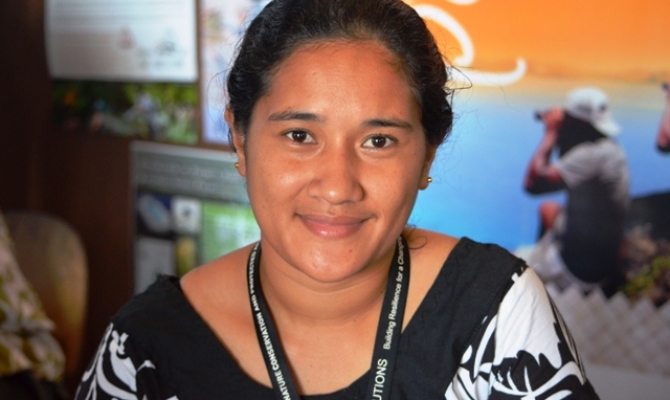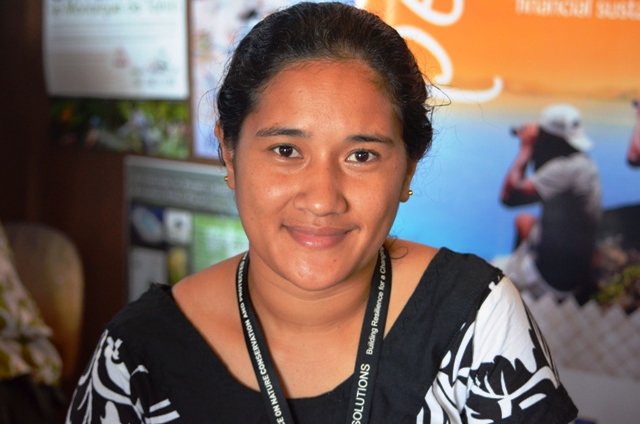
Island and Ocean Ecosystems
6 December 2013, Suva Fiji - By Josephine Navula, journalism student at FNU:- Communicating climate change and its associated issues to Tuvalu's people is challenging because of the difficulty in translating scientific terms in the native language.
This was shared by Tuvalu's Biodiversity officer Ms. Tilia Tima at the 9th Pacific Islands Conference on Nature Conservation and Protected Areas in Suva, Fiji.
 Ms. Tilia Tima, Tuvalu's Biodiversity officer
Ms. Tilia Tima, Tuvalu's Biodiversity officer
"It's hard to translate words to the people back at home because we don't have a specific term for it," she said.
"The other thing that we are facing difficulty in are forms of communications, since our only form of communication is radio, and since we have eight islands far apart from each other, it's really hard when some of the people don't have access to radio."
Trying to generate interest among the locals so that they attend the various awareness programmes was another problem, said Tuvalu's Ministry of Natural Resources Research Officer Mr. Semese Alefaio.
He said although many workshops were held to raise awareness on environment issues, many did not attend.
"Most of the people don't attend the awareness programmes because of isolation."
He said the need to increase women's involvement was also pertinent.
Josephine Navula is a member of the Media Team providing coverage of the 9th Pacific Islands Conference on Nature Conservation and Protected Areas from 2 to 6 December in Suva, Fiji. This is a partnership between the Fiji National University (FNU), University of the South Pacific (USP), SPREP and Pacific Islands News Association (PINA) whereby a team of 10 journalism students are mentored by senior reporters as they cover the conference. This activity is funded by the Pacific Assistance Media Scheme (PACMAS).
This was shared by Tuvalu's Biodiversity officer Ms. Tilia Tima at the 9th Pacific Islands Conference on Nature Conservation and Protected Areas in Suva, Fiji.
 Ms. Tilia Tima, Tuvalu's Biodiversity officer
Ms. Tilia Tima, Tuvalu's Biodiversity officer"It's hard to translate words to the people back at home because we don't have a specific term for it," she said.
"The other thing that we are facing difficulty in are forms of communications, since our only form of communication is radio, and since we have eight islands far apart from each other, it's really hard when some of the people don't have access to radio."
Trying to generate interest among the locals so that they attend the various awareness programmes was another problem, said Tuvalu's Ministry of Natural Resources Research Officer Mr. Semese Alefaio.
He said although many workshops were held to raise awareness on environment issues, many did not attend.
"Most of the people don't attend the awareness programmes because of isolation."
He said the need to increase women's involvement was also pertinent.
Josephine Navula is a member of the Media Team providing coverage of the 9th Pacific Islands Conference on Nature Conservation and Protected Areas from 2 to 6 December in Suva, Fiji. This is a partnership between the Fiji National University (FNU), University of the South Pacific (USP), SPREP and Pacific Islands News Association (PINA) whereby a team of 10 journalism students are mentored by senior reporters as they cover the conference. This activity is funded by the Pacific Assistance Media Scheme (PACMAS).